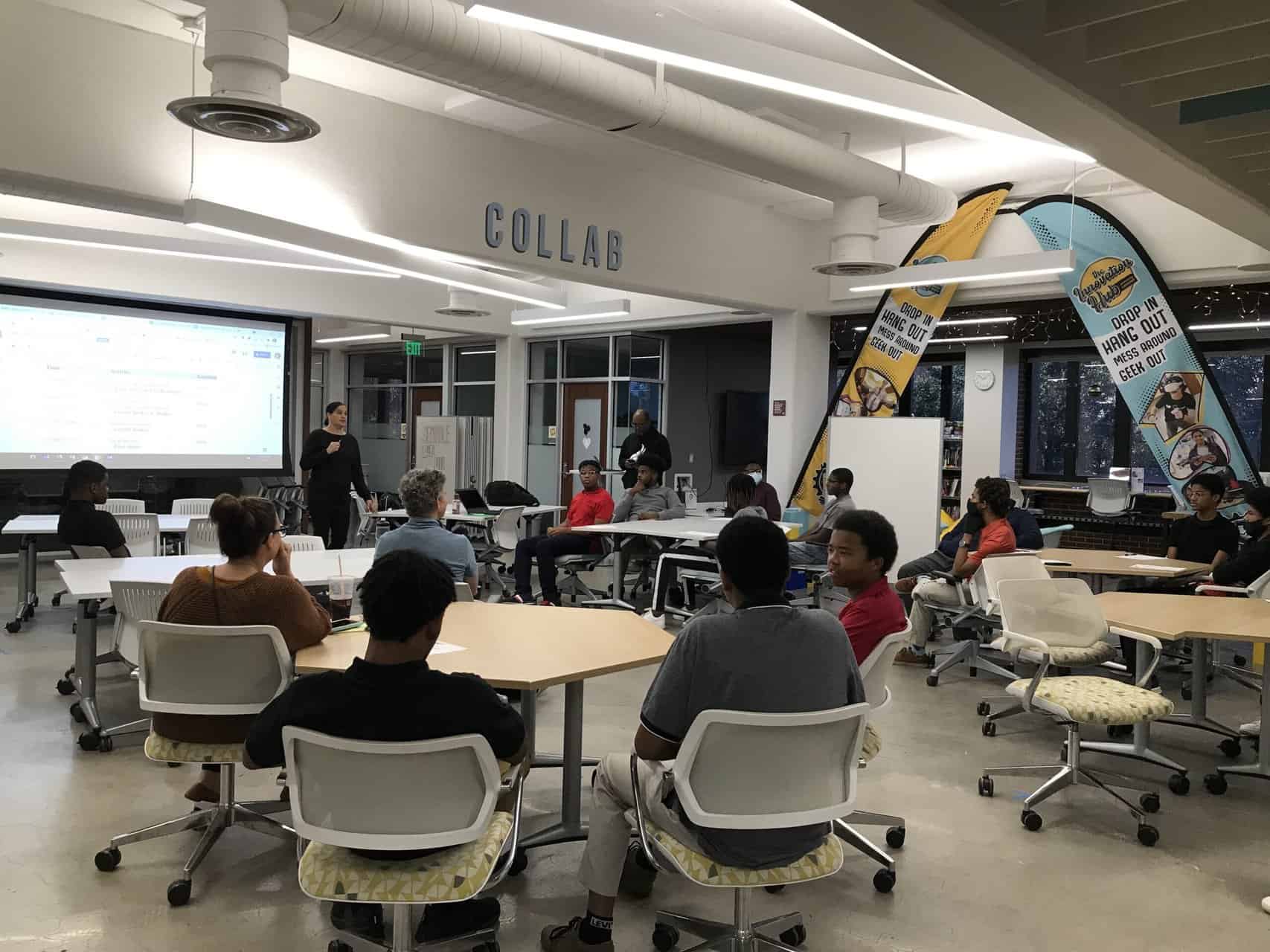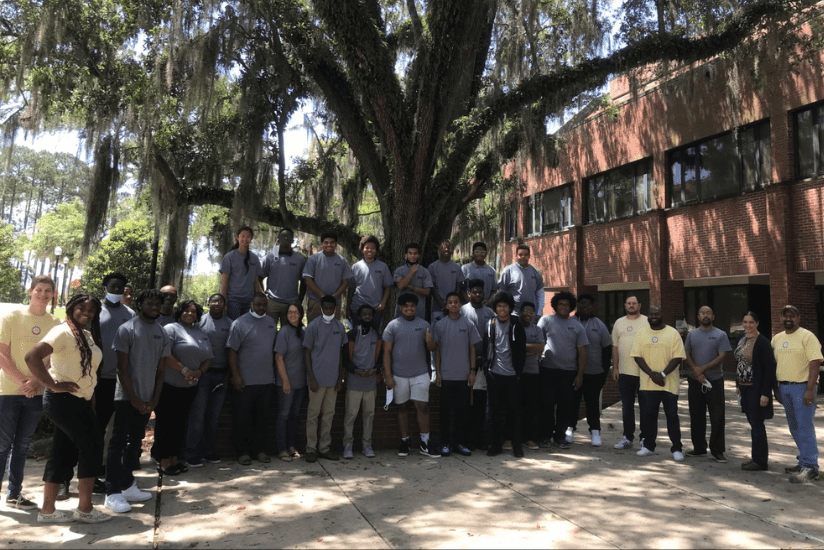Recently, the College of Communication and Information’s Black Men in Tech (BMIT) program reached the end of its pilot year. The program, led by PI and Faculty Researcher Dr. Faye Jones, Co-PI and Associate Dean of Finance & Administration Ebe Randeree, and lead instructor and award-winning faculty member Dr. Christy Chatmon, served to connect young Black men in local high schools to mentors, technology training, technology careers, and students. The program worked with CTE teachers at Amos P. Godby High School, James S. Rickards High School, Florida State University School (FSUS), and the Florida A&M University Developmental Research School and was funded by the Army Educational Outreach Program (AEOP). Students accepted in the program were rising high school young Black men that worked in small innovation hubs in each of the four schools.

The students participating in the program worked biweekly with teachers in their high schools’ hubs throughout the year in three main areas: video game design (led by CCI Instructor Lucas von Hollen), web design (led by Assistant Professor Christy Chatmon), and videography (led by expert Gerald Tookes). Students also met once a month on zoom to talk with Black CCI IT alumni mentors who now work as executives and leaders in the technology industry. During these meetings, the mentors discussed a variety of different tech topics including motivation, technology career paths, industry trends, and how to get a job. The students were also able to visit Florida State’s campus every three to four months to utilize FSU’s Innovation Hub, connect with each other, and showcase their work. In addition, the students were mentored by current FSU students majoring in Information Technology, who worked with the students at their own schools as well as at the Innovation Hub. We give special thanks to the teachers at the school hubs for making this program a great success: Alejandro Gonzalez (FAMU DRS), Michelle Hartsfield (FSUS), Wendy Chan and Drew Magee (Godby HS), and Dr. Cecile Washington (Rickards HS).

Project Co-PI Ebe Randeree discussed the future of the project saying, “The next step is to look at the data we collected from the students, their pros and cons about the program, the work with their teachers, and the projects, and then use that as a foundation for a larger grant to bring more underserved students into these hubs. This first year pilot study which included 24 students and four high schools really served as a way to gather data on how an intervention program that works with students specifically in little innovation hubs could then help them pursue careers in technology programs.” Dr. Jones added, “It’s time to bring our underserved students to the forefront and give them the resources they need to be successful. BMIT only hit the surface, and the best is yet to come.”

